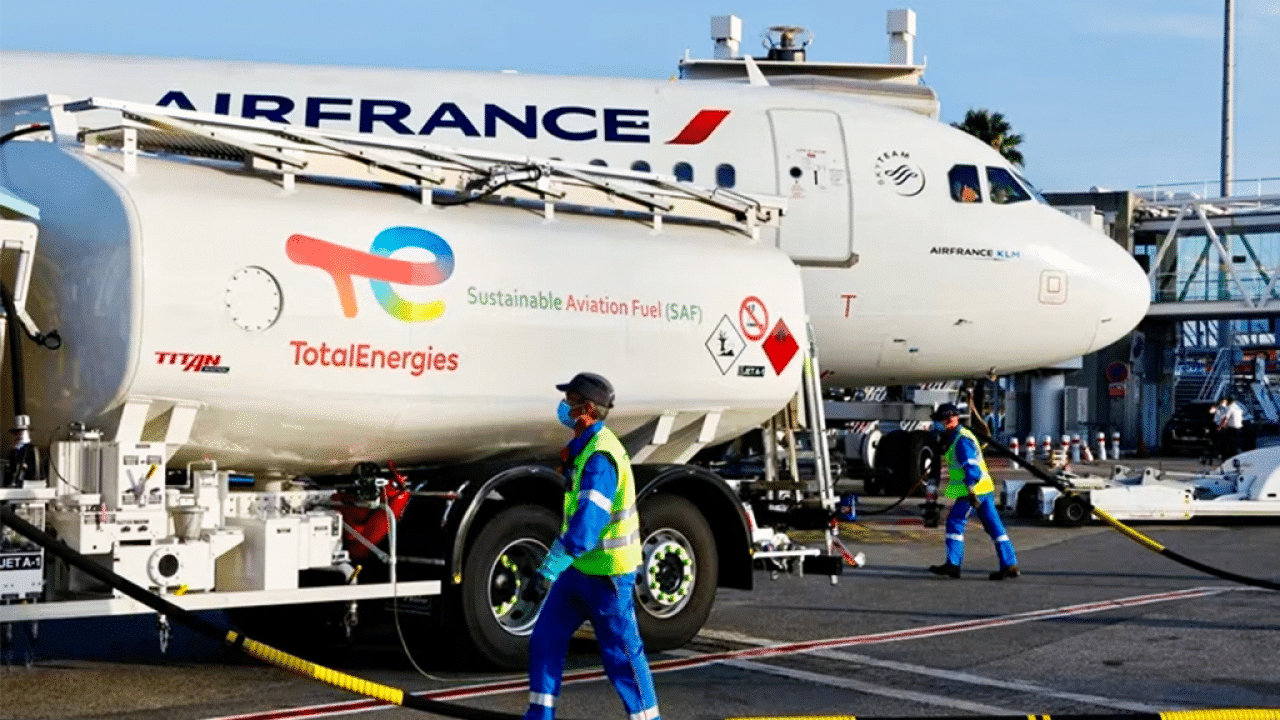SAF: A sustainable fuel for the country’s development

The sustainable aviation fuel, known as SAF by its English initials, has emerged as a promising solution to face the environmental challenges in the aviation sector. This type of fuel is produced from renewable raw materials, which allows for a significant reduction in CO2 emissions compared to conventional kerosene. With the potential to transform the aviation industry, SAF not only contributes to a more sustainable future, but also drives the country’s economic development by creating new jobs and fostering technological innovation. This movement towards the use of SAF can position the country as a leader in the energy transition and in the decarbonization of air transport.
The sustainable aviation fuel, known by its English initials as SAF, presents itself as a viable and responsible alternative for the economic, social, and environmental development of a country. Driven by the growing need to reduce greenhouse gas emissions in the aviation sector, SAF represents a crucial step towards a more sustainable future. Besides its potential to decarbonize air transport, its local production could generate a positive impact on the economy and employment, transforming the way mobility and energy resource management are understood.
The potential of SAF in the aviation industry
Sustainable aviation fuels are produced from renewable resources not derived from petroleum, such as organic waste, woody biomass, and fats and oils. This type of fuel allows for a significant reduction of CO2 emissions compared to conventional kerosene, offering a viable solution for the decarbonization of air transport. In this sense, the adoption of SAF is considered an essential goal by various countries in their energy transition strategy.
Proposals for the production and consumption of SAF
Diverse companies in the aviation and energy sectors have proposed a series of measures to promote the use and production of SAF. These proposals include economic incentives and regulations that facilitate its implementation in the market. It is estimated that the creation of production plants and the development of innovative technologies could generate a significant number of jobs, in addition to contributing to the national GDP growth.
It is crucial to establish a framework that supports this emerging industry. This includes the creation of an investment fund, grants, and an agile permit system, which would facilitate the installation of the necessary infrastructure for the production and distribution of SAF, thus ensuring that Spain can position itself as a leader in this new market.
Socioeconomic impact of SAF
Beyond its environmental benefits, SAF presents a clear socioeconomic potential. The implementation of these sustainable fuels can trigger a series of benefits, including the creation of jobs, the reindustrialization of various regions of the country, and the reduction of dependence on fossil fuels. Such a transformation can be fundamental not only for the economy but also to ensure a more sustainable environment.
Challenges in the adoption of SAF
Despite its numerous benefits, the adoption of SAF faces certain challenges that need to be addressed. One of the main obstacles is its cost, which is currently between three and five times higher than that of conventional kerosene. To strengthen its short-term viability, both the private and public sectors need to work together to take on the investments and production costs of this sustainable fuel.
Conclusions about the future of SAF
The progress towards greater adoption of SAF not only contributes to meeting environmental and sustainability goals, but also represents an essential strategy to strengthen the local economy and promote the country’s energy autonomy. Innovation in SAF production technologies, along with government support and collaboration between the public and private sectors, will be key to transforming the energy landscape and ensuring a greener and more sustainable future.
Finally, the adoption of SAF is not only an opportunity for the development of the aviation sector but also a gateway to a model of responsible production and consumption that can be replicated in other economic sectors, thus promoting a true shift towards sustainability.
The sustainable aviation fuel, known as SAF by its English initials, stands as a viable solution for the sustainability of the aviation sector and the economic development of a country. Its production, based on renewable raw materials and the utilization of organic waste, not only promotes a circular economy but also contributes to emission reductions, positioning the nation at the forefront of clean technologies.
The report on the roadmap for SAF production in Spain highlights the need to implement economic and regulatory measures that foster its development. The creation of production templates can generate a significant impact, projecting a more sustainable future for aviation and offering employment opportunities in rural areas, where these plants could be established. In doing so, the aim is not only to satisfy domestic demand but also to consolidate the country as a European hub for SAF production.
The initiatives driven by companies in the aviation and energy sectors emphasize the importance of public-private collaboration. For SAF to become a tangible and affordable reality, it is essential that the Government and the private sector join forces. This includes the adoption of an energy pact that prioritizes the development of sustainable fuels, investing in infrastructure and technologies that leverage the country’s natural wealth.
Finally, progress towards a more responsible and sustainable energy model is fundamental to face the challenges of climate change. The transition towards SAF will favor not only respect for the environment but also the creation of a more prosperous and conscious future for the coming generations.


